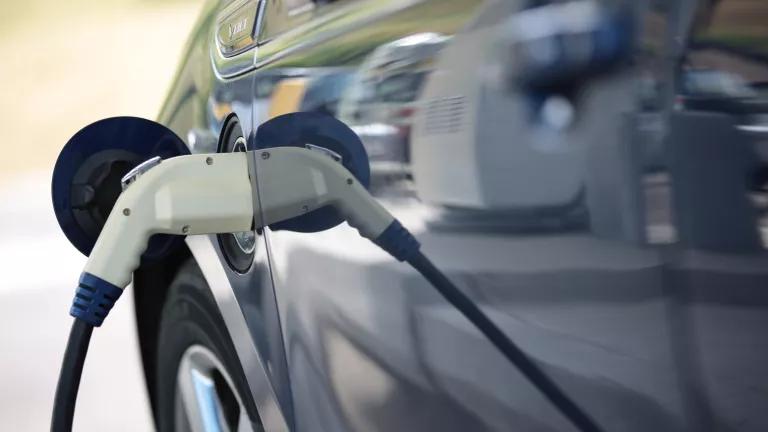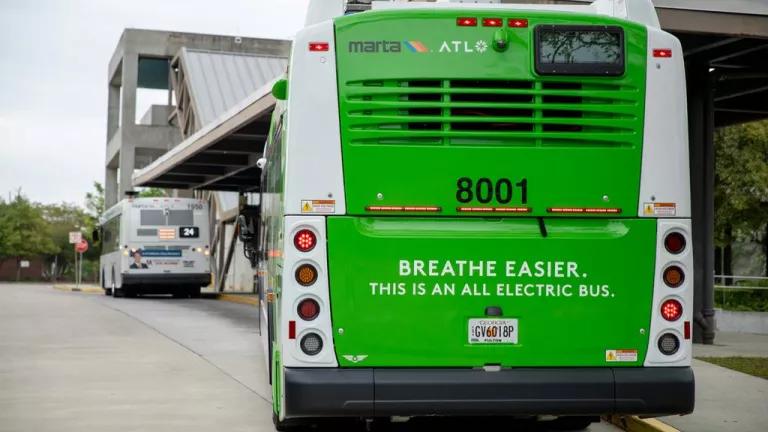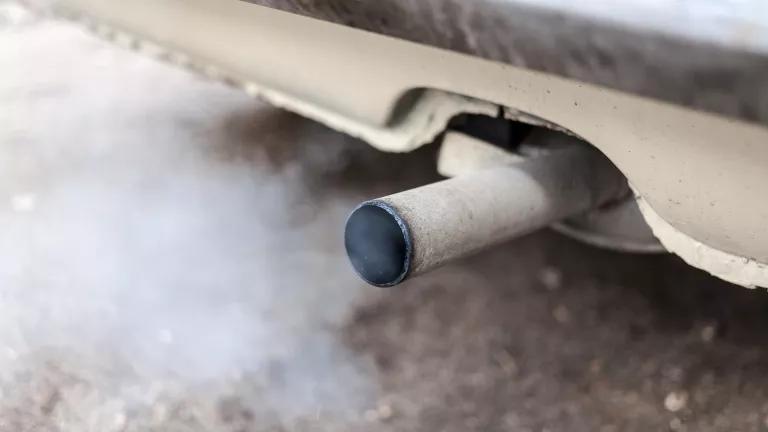VA, Birthplace of a Nation, Drives to a Cleaner Future
Virginia just signed into law a bill to join 17 other states that have adopted or are considering adoption of a “Clean Cars” program—setting the Commonwealth up to become the leader in electric vehicles in the South.

Matthew Staver/NREL, 39252
Virginia Governor Northam signed into law a bill to join 17 other states that have adopted or are considering adoption of a “Clean Cars” program—setting the Commonwealth up to become the leader in electric vehicles in the South. By adopting a Clean Cars Virginia program, Virginians will now have more choice on the types of clean vehicles they want to buy, while also cleaning up the air and reducing climate changing pollutants.
Now, we need to keep this momentum going, both here in Virginia with policies that continue to reduce pollution, and in other states.
Because there are many health and economic benefits of becoming a Clean Cars state. Virginia’s new law secures these benefits by directing the State’s Air Pollution Control Board to adopt and implement the program, which will:
- Require vehicle manufacturers to continue to bring to Virginia cleaner cars available in other states that emit less climate pollution, soot, and smog-forming pollutants that worsen asthma; and
- Require manufacturers to also deliver a rising number of electric cars, SUVs, and pickup trucks, also known as electric vehicles, or “EVs” that are currently available in other states.
This is also good news for the average new vehicle driver in Virginia, who can expect to save more than $1,000 over the life of their vehicle due to decreased refueling costs and lower maintenance costs. Drivers of gasoline-fueled SUVs and pick-up trucks will save even more. And those who are in the market for an EV will have a growing array of cars to choose from as automakers bring more models to Virginia, since consumers in clean car states will be some of the first in the country to have access to the latest models.
Clean Cars is also is good news for air quality and health—EVs will help clean up the air we breathe by cutting carbon pollution as well as smog-forming emissions and particulate matter.
Even car dealerships have realized the importance of adopting Clean Cars. During the legislative session in Virginia, the Virginia Automobile Dealers Association (VADA) supported the program, stating that the dealers:
“[u]nderstand the adoption of electric vehicles will be achieved, but only with the investment of all parties: manufacturers, dealers, electric utilities, environmental groups, government, consumers.”
What’s next for VA on Clean Transportation
These benefits are a huge step forward for Virginia. But after years of inaction on averting the climate change and seas that are already rising today on Virginia’s coast, our work is not yet done. Climate pollution from vehicles will continue to be Virginia’s largest source of pollution – and may even rise as a share of Virginia’s total emissions in the coming years. To ensure we build on this major advance of Clean Cars Virginia, momentum needs to continue to fully address the state’s carbon pollution with a total reimagining of a lower carbon transportation system is needed, including more equitable and lower polluting transit options. To do so, a sustainable funding mechanism will be needed to ensure our economy is powered by a steadily less-polluting transportation system. NRDC and many others will continue the work to ensure that becomes a reality through the Transportation and Climate Initiative, to build on the foundation laid by Clean Cars Virginia.
Clean Cars In Other States
Looking beyond the Commonwealth, Virginia may be the latest state to adopt the Clean Cars standards, but it will not be the last. There are several other states that are looking to hop aboard the EV train.
Pennsylvania: The Keystone State adopted part of the Clean Car standards over ten years ago, but the Department of Environmental Projection recently announced plans to adopt the rest of the standards this fall, which will increase the number of EVs available to Pennsylvanians.
Minnesota: The Land of 10,000 Lakes is currently considering adopting a Clean Cars Minnesota program supported by a multitude of organizations.
Nevada: The Silver State is looking to cash-in on a Clean Cars Nevada program by adopting a program this year to also attract more EV offering to their state as well as cleaner, gasoline fueled vehicles.
Washington: The Evergreen State also signed into law a bill last year requiring its Department of Ecology to begin a rulemaking for a Zero Emission Vehicles (ZEV) program.
If these states adopt these clean car programs, 40% of the US automotive market would require automakers to increase EV deliveries and make them more available to consumers.
There is reason to believe the clean cars trend will continue. Other states have also shown interest in supporting clean transportation in order to achieve their climate goals and improve air quality. North Carolina, for example, has a goal of getting 80,000 EVs on the road by 2025—adopting the Clean Cars standards will help the state get to this goal.
Those advances across several states – and our continued work in Virginia to make the Transportation and Climate Initiative a reality – will all ensure a dramatically cleaner and more prosperous future.





